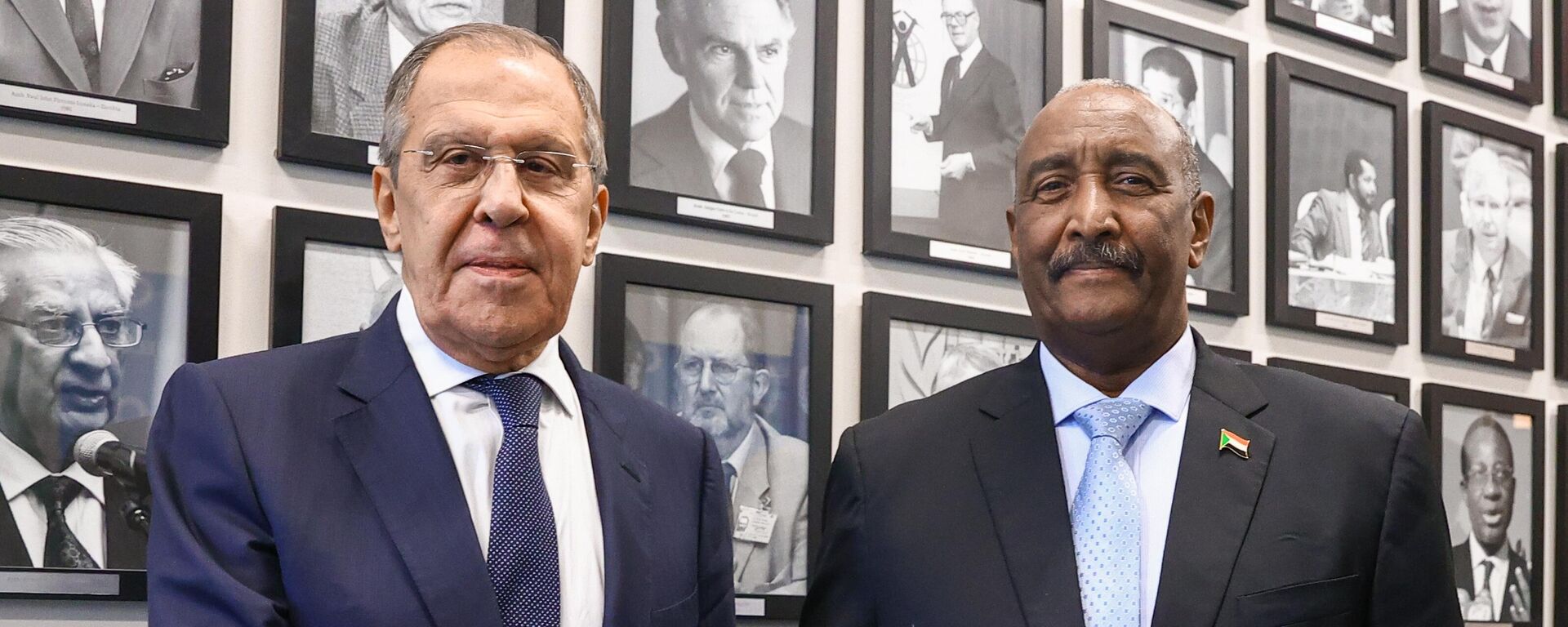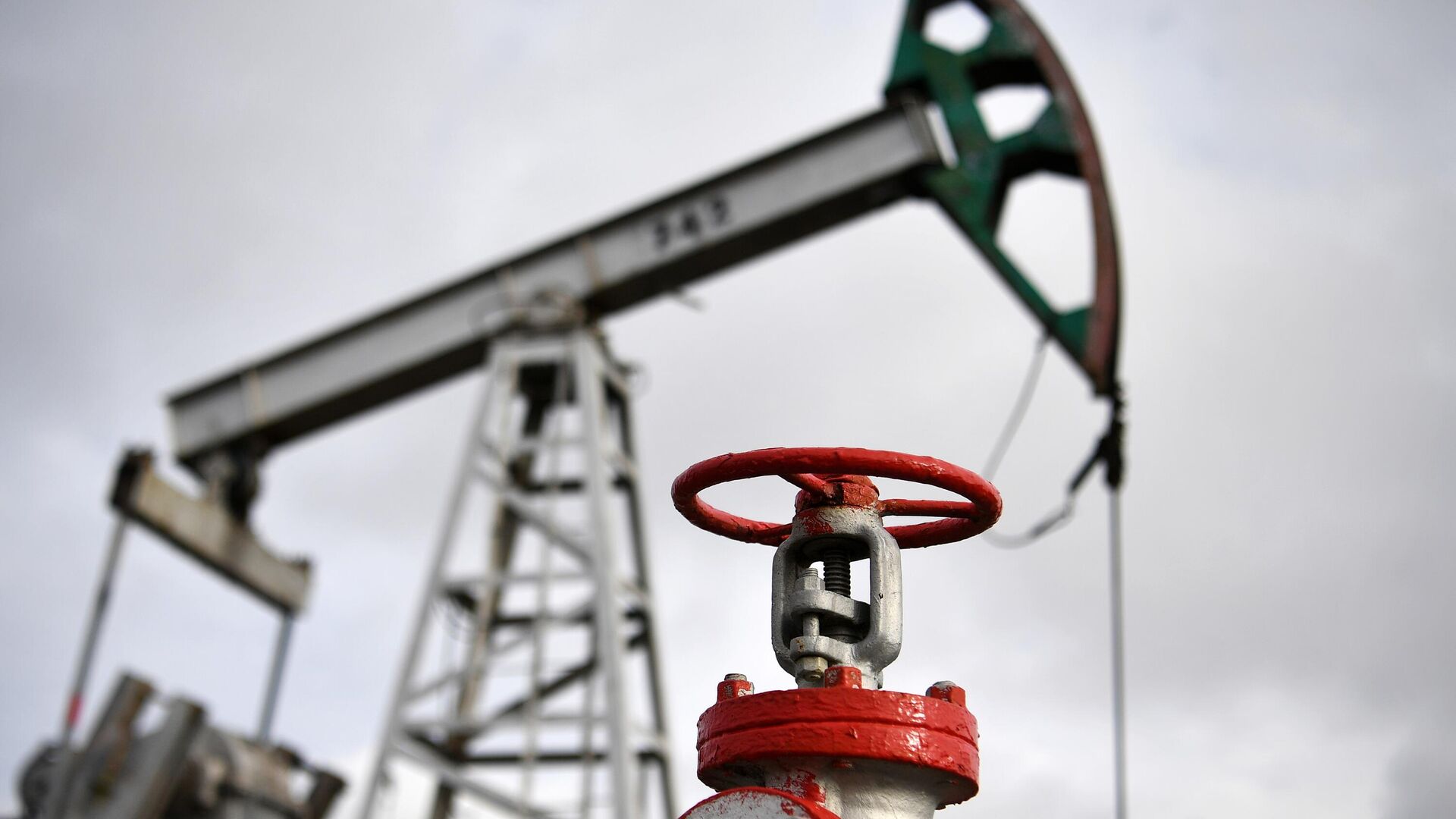https://sputnikglobe.com/20230303/sudan-to-enhance-cooperation-with-russia-in-oil-production-energy-ministry-says-1107986406.html
Sudan to Enhance Cooperation With Russia in Oil Production, Energy Ministry Says
Sudan to Enhance Cooperation With Russia in Oil Production, Energy Ministry Says
Sputnik International
Sudan is willing to cooperate with Russia in oil production as it seeks to reduce dependence on crude oil imports, the Acting Energy and Oil Minister Mohamed Abdallah told Sputnik.
2023-03-03T18:10+0000
2023-03-03T18:10+0000
2023-03-03T18:10+0000
africa
north africa
sudan
russia
energy
oil and gas
cooperation
oil production
https://cdn1.img.sputnikglobe.com/img/07e7/02/17/1107745190_0:181:2997:1867_1920x0_80_0_0_c1c3e574b66b6288e1a966f0210f097e.jpg
Sudan is willing to cooperate with Russia in oil production as it seeks to reduce dependence on crude oil imports, and is already in talks with the country's major companies in the field, Acting Energy and Oil Minister Mohamed Abdallah told Sputnik.According to the official, several Russian firms are already operating in Sudan's oil and gas sector, while negotiations with companies such as Rosneft and Zarubezhneft are underway. The minister explained that Khartoum is going to increase oil production, with the ultimate goal to cut its reliance on imports, phase out the importation of oil, in particular from South Sudan, and eventually be able to fully provide itself with sufficient amounts of fuels. In this regard, he stressed, Moscow could provide necessary assistance in terms of investment in infrastructure, as well as technical support. Following the separation of South Sudan from Khartoum in 2011, 75% of the oil fields of the once united country went to the south. However, the entire infrastructure needed for oil exporting remained in the north. Abdallah noted that in recent years, Sudan has failed to boost its oil output, with production standing at "only 40,000-50,000 barrels a day, which is not enough for domestic consumption." At the same time, he stressed that given Sudan's oil and gas reserves, in the future the country will be able to produce sufficient amounts for the local market, while "the rest will be exported."He elaborated that the nation's oil and gas reserves are mainly concentrated in 26 fields, including areas that have not been developed yet, while tenders are planned to be issued for a number of these fields. He also confirmed that the political situation in the country will not affect Khartoum's obligations under contracts with foreign investors in the oil and gas sector, stating that the government considers the sector an important factor in development and economic growth.Earlier, Director of the Department of International Cooperation of the Russian Ministry of Energy Dmitry Semenov stated that Russia is discussing with Sudan the expansion of cooperation in the oil sector, and is ready to work together on technologies for enhanced oil recovery, associated gas utilization, oil refining, and petrochemistry.
https://sputnikglobe.com/20230209/multifaceted-cooperation-russian-fm-lavrov-arrives-in-sudan-1107104224.html
africa
north africa
sudan
russia
Sputnik International
feedback@sputniknews.com
+74956456601
MIA „Rossiya Segodnya“
2023
News
en_EN
Sputnik International
feedback@sputniknews.com
+74956456601
MIA „Rossiya Segodnya“
Sputnik International
feedback@sputniknews.com
+74956456601
MIA „Rossiya Segodnya“
north africa,sudan, russia, gas and oil, oil production, cooperation, ministry of energy and oil, oil imports
north africa,sudan, russia, gas and oil, oil production, cooperation, ministry of energy and oil, oil imports
Sudan to Enhance Cooperation With Russia in Oil Production, Energy Ministry Says
Last month, Russian Foreign Minister Sergey Lavrov visited Sudan as part of his African tour and discussed with the country's leaders key aspects of Russian-Sudanese multifaceted cooperation, including partnership in the energy sector.
Sudan is willing to cooperate with Russia in oil production as it seeks to reduce dependence on crude oil imports, and is already in talks with the country's major companies in the field, Acting Energy and Oil Minister Mohamed Abdallah told Sputnik.
"Russia is a state with great technological capabilities, so we are open to cooperation with the country in the field of oil production, and even in the development of infrastructure. We have already started negotiations with Russian companies," Abdullah said.
According to the official, several Russian firms are already operating in Sudan's oil and gas sector, while negotiations with companies such as Rosneft and Zarubezhneft are underway.

9 February 2023, 07:14 GMT
"We are willing to modernize [the oil fields] and boost domestic oil production in order to reach self-sufficiency and cut reliance on crude imports from South Sudan," he stated.
The minister explained that Khartoum is going to increase oil production, with the ultimate goal to cut its reliance on imports, phase out the importation of oil, in particular from South Sudan, and eventually be able to fully provide itself with sufficient amounts of fuels. In this regard, he stressed, Moscow could provide necessary assistance in terms of investment in infrastructure, as well as technical support.
Following the separation of South Sudan from Khartoum in 2011, 75% of the oil fields of the once united country went to the south. However, the entire infrastructure needed for oil exporting remained in the north.
Abdallah noted that in recent years, Sudan has failed to boost its oil output, with production standing at "only 40,000-50,000 barrels a day, which is not enough for domestic consumption." At the same time, he stressed that given Sudan's oil and gas reserves, in the future the country will be able to produce sufficient amounts for the local market, while "the rest will be exported."
He elaborated that the nation's oil and gas reserves are mainly concentrated in 26 fields, including areas that have not been developed yet, while tenders are planned to be issued for a number of these fields. He also confirmed that the
political situation in the country will not affect Khartoum's obligations under contracts with foreign investors in the oil and gas sector, stating that the government considers the sector an important factor in development and economic growth.
Earlier, Director of the Department of International Cooperation of the Russian Ministry of Energy Dmitry Semenov stated that
Russia is discussing with Sudan the expansion of cooperation in the oil sector, and is ready to work together on technologies for enhanced oil recovery, associated gas utilization, oil refining, and petrochemistry.



